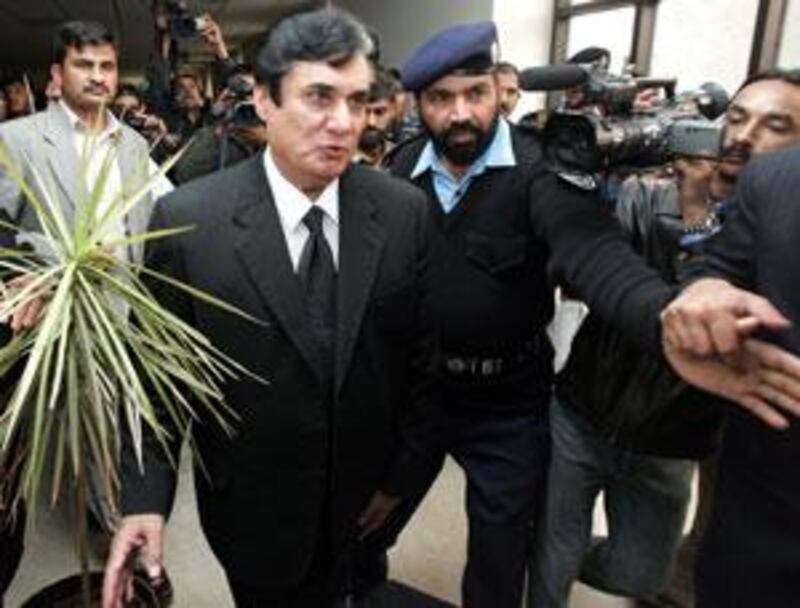ISLAMABAD // Pakistan's government has intervened to end an embarrassing public spat between the judiciary and army over hundreds of people believed to be in the custody of military intelligence agencies. A confrontation had been brewing since March 2, when the Supreme Court hinted that it would summon the heads of military intelligence agencies to account for some 1,600 missing people, most of them detained on suspicion of involvement in militant and nationalist insurgencies in the North West Frontier and Balochistan provinces.
With neither side prepared to budge, the government stepped in on March 18 by appointing a judicial commission, comprising a retired justice of the Supreme Court and two former High Court judges, to investigate the issue. The commission has been given similar powers to that of the Supreme Court, including summoning military officers to give testimony, said Latif Khosa, the attorney general. However, the commission is likely to hold its proceedings behind closed doors, taking the case out of the public domain, at least until it delivers its findings, analysts said.
Three judges of the Supreme Court, who, since January, have been hearing petitions filed by families of the missing persons and human rights organisations, had repeatedly voiced frustration with the slow response to their orders for reports on the status of the detainees. Having vowed to deliver judgment on the case, a highly emotive issue in Pakistan, by February, the court was not given a definitive report about the number of missing persons by the government until the end of that month.
The government said some 1,600 people had been reported missing from 2005 up to the end of 2008, but failed to give account for hundreds of people detained since, prompting Justice Javed Iqbal, the senior judge, to observe that the number of persons whose whereabouts were unaccounted for had risen, rather than fallen, during the hearing of the case. The court had given the government until March 18 to submit a detailed report on the status of all missing persons, saying it would deliver its final ruling by the end of the month.





